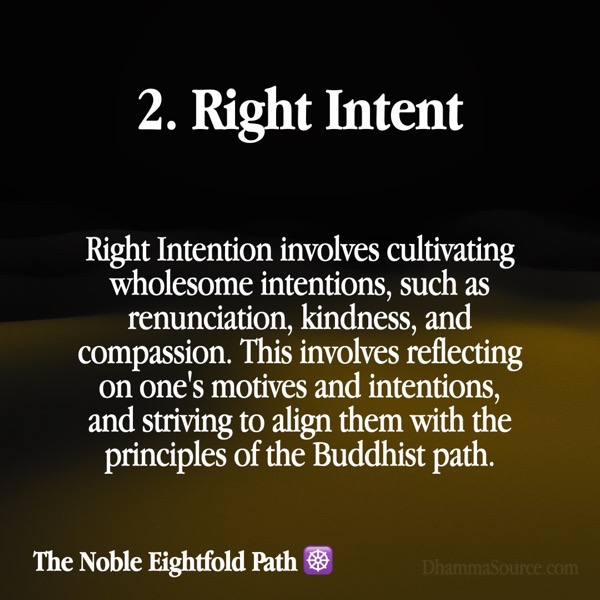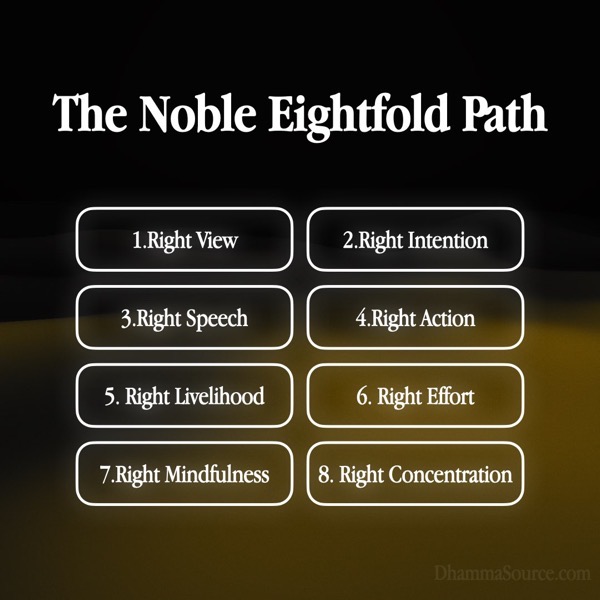Right Intention – The Noble Eightfold Path

Right Intention is one of the factors of the Noble Eightfold Path in Buddhism. It is an essential component of the path towards enlightenment and involves cultivating wholesome intentions or motivations. In this blog post, we will explore the concept of Right Intention in Buddhism, its meaning, significance, and how to cultivate it.
What is Right Intention?
Right Intention is the second factor of the Noble Eightfold Path and is also known as Samma Sankappa. It refers to the cultivation of wholesome intentions or motivations that are aligned with the Buddhist teachings. The three aspects of Right Intention are renunciation, non-ill will, and non-harm. Renunciation involves letting go of worldly desires and attachments, non-ill will involves cultivating goodwill towards all beings, and non-harm involves refraining from actions that cause harm to oneself or others.
The significance of Right Intention
Right Intention is significant in Buddhism for several reasons. Firstly, it is essential for the cultivation of other factors of the Noble Eightfold Path. Without wholesome intentions, it is impossible to cultivate the other factors, such as Right Speech, Right Action, and Right Livelihood. Secondly, Right Intention is necessary for the development of wisdom, which is essential for liberation from suffering. Finally, cultivating wholesome intentions leads to greater inner peace and happiness.
How to cultivate Right Intention
Cultivating Right Intention involves the following:
Reflection: Reflection involves reflecting on one’s motivations and intentions. This can be done through meditation, journaling, or introspection. By reflecting on our intentions, we can become more aware of our unwholesome motivations and cultivate more wholesome ones.
Practice mindfulness: Mindfulness involves being present and aware of our thoughts, feelings, and actions. By practicing mindfulness, we can become more aware of our unwholesome intentions and cultivate more wholesome ones.
Cultivate renunciation: Renunciation involves letting go of worldly desires and attachments. By cultivating renunciation, we can develop a more wholesome intention of seeking inner peace and happiness, rather than seeking external pleasures.
Cultivate non-ill will: Non-ill will involves cultivating goodwill towards all beings. By cultivating non-ill will, we can develop a more wholesome intention of wanting the best for all beings, rather than harboring negative emotions towards them.
Cultivate non-harm: Non-harm involves refraining from actions that cause harm to oneself or others. By cultivating non-harm, we can develop a more wholesome intention of promoting the well-being of all beings, rather than causing harm.

Right Intention is a crucial aspect of the Noble Eightfold Path in Buddhism. It involves cultivating wholesome intentions that are aligned with the Buddhist teachings, such as renunciation, non-ill will, and non-harm. By cultivating Right Intention through reflection, mindfulness, renunciation, non-ill will, and non-harm, we can develop greater inner peace and happiness, and ultimately achieve liberation from suffering.




